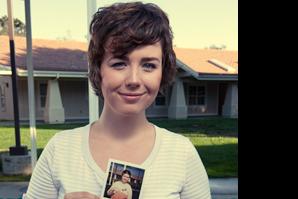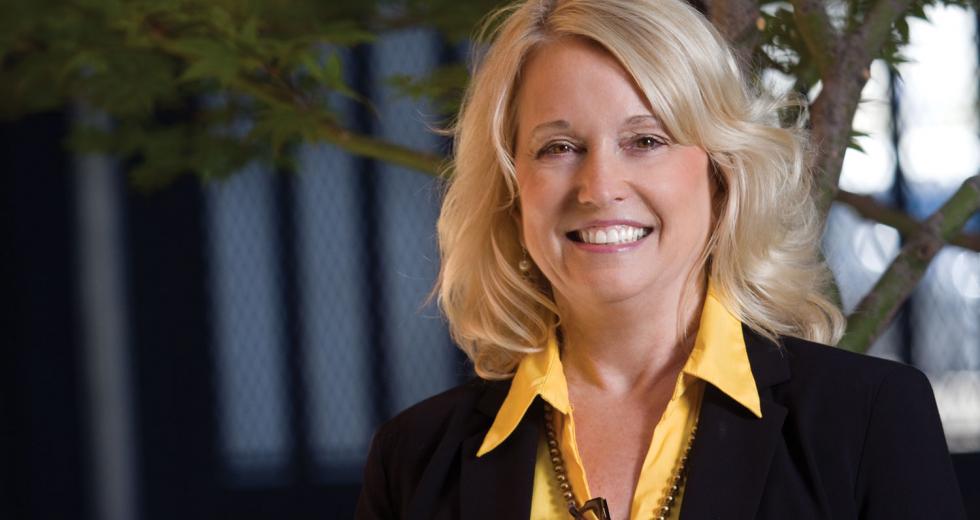Sometimes small things can make big differences. Whether it’s a dry towel, a warm hat or advice on how to create a budget, a little bit of time can have a positive impact on one of Sacramento County’s 4,000 foster youth, many of whom don’t have anyone to provide these basics. Foster youth often jump from family to family and school to school struggling to overcome the trauma of neglect and abuse. Many are dropped from public support with no safety net at age 18. But local organizations such as Women in Philanthropy are working to smooth out the bumps.
Volunteer Terry Myrrdin discovered the power of making a difference by chance. Six years ago the chief of facilities oversight for the Secretary of State’s office was “volentold” to represent the department during the California State Employees Charitable Campaign. This led her to attend a United Way event featuring former Maryland Lt. Gov. Kathleen Kennedy Townsend, who spoke about the model programs in Sacramento for foster youth. “I was bitten,” Myrrdin says. “I knew I had to make time to do this.” She has been a volunteer ever since.
Women in Philanthropy includes a long list of local business and community members who have given a minimum of $1,500 a year to United Way’s Community Impact Fund to support a variety of programs that make the lives of foster youth a bit more manageable.
Through the program, Myrrdin recently had the chance to teach a life skills workshop. She addressed two groups of 40 foster teens, most sent by the courts because of problems running away or run-ins with the law. She brought her 101 common-sense rules for getting along in life from what to wear to work to how to balance a checkbook. “The main message was to stop, look, listen and think,” Myrrdin says. “If one young person adopted one thing because of my presentation and it changed a risky behavior, it was worth the time.”
Myrrdin says almost anyone could be in the same situation as these young people. “I have two grown daughters and four lovely grandchildren now but at one time was a divorced mother with a deadbeat dad,” Myrrdin says. “I was lucky that I had family to support me emotionally. It can all be taken away so easily.”
Other presentations from Women in Philanthropy volunteers have included affordable and healthy eating, public speaking and job hunting skills. “Where else are they going to hear these important messages?” Myrrdin asks.
United Way California Capital Region, an independent local affiliate of United Way of America, has made helping foster youth in Amador, El Dorado, Placer, Sacramento and Yolo counties a priority.
Through Women in Philanthropy, United Way funds programs aimed at softening emancipation for foster youth. Holiday stockings filled with gift cards, flu kits and treats donated by local businesses bring cheer to hundreds every year. A local knitting group donates handmade hats and scarves.
Emancipation baskets filled with hundreds of donated towels and toiletries can also make a difference. “A simple thing like a towel can add dignity,” says Amber Murry, United Way vice president of marketing. New in 2009, donated luggage is a welcomed addition for many foster youth who typically rely on plastic garbage bags as they move from home to home.
Women in Philanthropy also funnels money to Sacramento-based Linkage to Education. Executive Director Daren Maeda credits the support, which dates back to 1995, for allowing him to help as many as 1,000 students make the transition from foster care to college.
“They understand the urgency,” Maeda says. “They aren’t just writing checks. As women, mothers and daughters, they understand what it would be like to be kicked out at age 18.”
He also values the visibility Women in Philanthropy brings to his organization by talking about the program within its network. “In addition to financial support, United Way’s contribution adds name recognition. They may not know Linkage to Education, but they know United Way,” he says. “It eases a donor’s mind.”
Maeda uses the funds to pay for textbooks, which can cost as much as $1,000 a year for some students. He also counsels freshmen to help them navigate campus. “The first year is pivotal in their success regardless of economic condition,” Maeda says. Monitoring during that critical first year shows students that someone cares. It gives them at least one positive perception about adults. “We help answer the question: What do you want to be when you grow up?” and place them on a path to success.
Maeda has been running the program since 1988 when, while working in juvenile hall, he saw a revolving door of bright young people. He says they had no idea how to take that first step to enter college and change their lives.
Another funded agency partner is the Child Abuse Prevention Council of Sacramento, which runs the five-year-old Youth Investment Center. Funds collected through United Way’s Women in Philanthropy program pay the matching grant requirement to hire AmeriCorps aids to work with up to 800 foster youth. More than 100 at-risk students are singled out for intensive nurturing based on need. Trained counselors offer after-school homework assistance, one-on-one tutoring, life skills tips and, perhaps most importantly, act as positive role models.
Sara Fung, Child Abuse Prevention Council of Sacramento program manager, says former foster youth make ideal counselors because they understand the challenges these children face each day. They know how the system works and what children need to hear. “We are really making a difference in the lives of children,” Fung says.
Recommended For You

Fostering Hope
Nonprofits and community support provide struggling youth with opportunity
Samantha Smith was 13 when she first left home for the streets of Folsom. Living in and out of foster care, she was driven from homes by conflict and turbulence and returned only when in need of food or clothing.

Child Nomad
Finding success after foster care
Chloe Walker doesn’t remember the first time she moved or how many times she had to pack her belongings in flimsy trash bags. But she remembers getting her first suitcase at age 18, when she became too old for the foster system.



